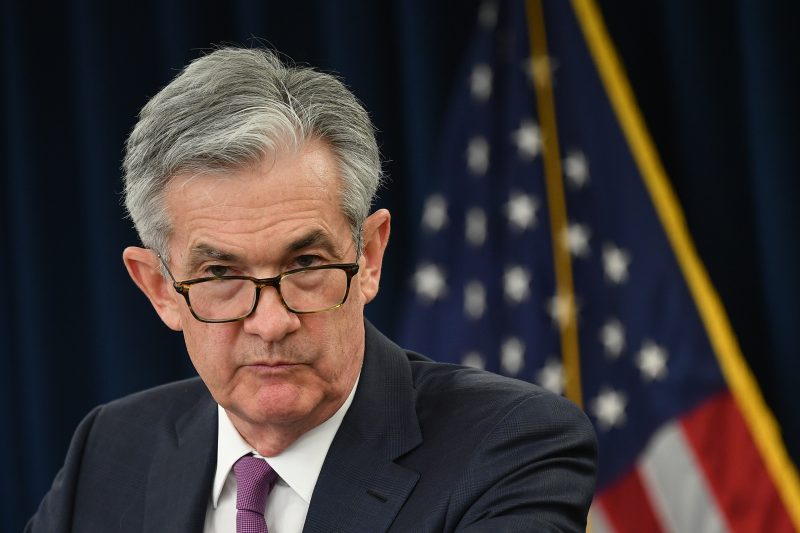Trump continues to poke Fed as policy meet opens
Powell has insisted on the central bank’s political independence (MANDEL NGAN)
Washington (AFP) – With no letup in pressure from the White House, the Federal Reserve on Wednesday is set to make its latest policy announcement that markets expect could mark a critical shift in direction.
Most Fed watchers do not expect the central bank to move interest rates when the two-day meeting lets out in the early afternoon but a strong consensus now holds the central bank will signal its next move will be downward — and possibly soon.
Fed chief Jerome Powell is walking a tightrope between economic necessity and political pressure from President Donald Trump who has repeatedly criticized the US central bank and demanded an interest rate cut to boost the economy.
Trump on Tuesday afternoon continued poking the Fed’s ribs, implying to reporters at the White House that he was considering demoting Powell.
“Let’s see what he does,” Trump said when asked if he was planning to remove Powell from the top position.
He said that by raising rates in recent years the Fed had denied him “a level playing field” compared to the easy monetary policy in Europe.
“I want to be given a level playing field. So far, I haven’t been,” Trump said.
He also blasted European Central Bank chief Mario Draghi, who hinted Tuesday at further eurozone interest rate cuts, which drove the euro down against the dollar. Trump criticized the “dramatic” signal as a way to gain an advantage over the United States.
But regardless of Trump’s jawboning, the central bank may already be headed toward doing precisely what the president wants: lowering the key lending rate for the first time in a decade.
– Walking a tightrope –
Amid signs the global economy has begun to sputter, and as Trump’s multi-front trade wars begin their second year, top policymakers have hinted in recent weeks that they could be open to easing monetary policy.
The FOMC will release its updated quarterly forecasts on Wednesday along with the policy announcement, and economists are watching those as closely as the statements from Powell at his press conference.
Futures markets on Tuesday were overwhelmingly predicting rate cuts in July and September, and some economists said there was no need for the Fed to wait that long.
But Kathy Bostjancic, chief US financial economist at Oxford Economics, told AFP the Fed would likely walk a fine line of suggesting a rate cut was possible but not guaranteed.
So far, economic data do not justify easing policy, she added.
“I also believe the downside risks have increased but they haven’t yet seen the evidence in the hard data to suggest a rate cut is warranted,” she said.
Still, the world’s largest economy has given off mixed signals in recent months with slowing job gains, weak manufacturing, and sluggish home construction, counteracted by healthy consumer spending, very low unemployment and tepid inflation.
Nevertheless, fears of a US recession, slackening growth in Europe and Asia or an intensifying trade war with China have caused investors to clamor for support from the Fed.
Ian Shepherdson of Pantheon Macroeconomics said Tuesday things were not as dire as investors seemed to believe.
Second-quarter GDP growth could be north of two percent, China’s economy could soon recover and the trade wars could subside.
“In short, what’s the problem that the Fed needs to address here,” he said in a note to clients.
Disclaimer: Validity of the above story is for 7 Days from original date of publishing. Source: AFP.


